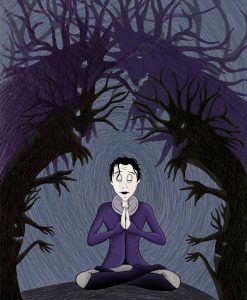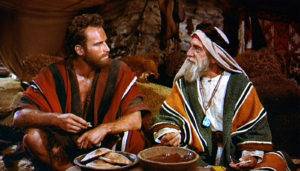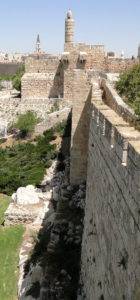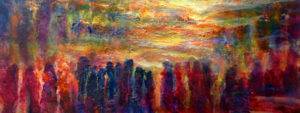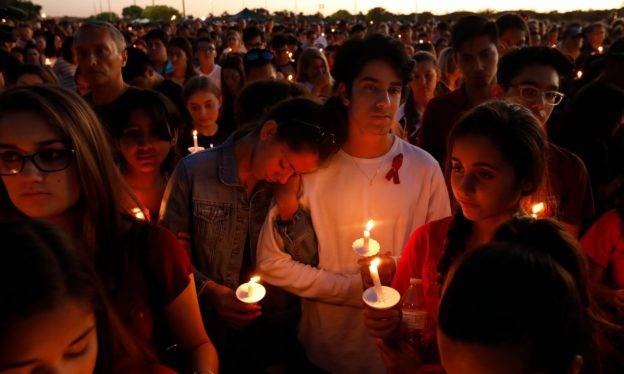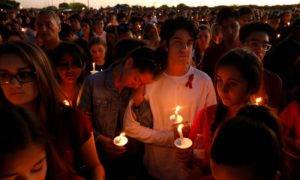And He lived…
Vayechi is a misnomer. The chapter that opens with And He Lived is actually the final moments of Jacob’s life. Jacob is on his deathbed, surrounded by his sons. He offers frank assessments of them and blessings of a kind as he prepares to die. Indeed, our tradition looks to this chapter as the essence of the Jewish Ethical Will. It is a centerpiece for me when teaching the Ethical Legacy Will. What we bequeath as our legacy is genuinely profound; what we offer as our final thoughts, spoken and unspoken, will resonate in the hearts and minds of those we leave behind, framing their understandings of their place in the world and how they forge relationships of their own. One of the most striking examples lies outside the text. Nowhere is Jacob’s daughter Dinah to be found.
We can surmise that Dinah’s relationship with her father, Jacob, was not close. In the story of her rape, she is identified as the daughter of Leah. We never hear her voice telling the story, and Jacob’s concern for his sons’ vengeance focuses on how it will complicate things with other clans. He seems unconcerned about whether she was harmed. It is disappointing that Dinah is not at her father’s bed to say goodbye. Every son was there, and even sons not held in particular esteem were present to at least hear their father’s final words.
What is said and what is unspoken, who is in the room, and who is excluded. We learn so much by being aware of these things. We hold an extraordinary power as parents. We are exemplars of behavior and also models of misconduct. Both have a profound impact. We need to exercise caution. For what we say and to whom will last far beyond our mortality.
Did Dinah grieve for Jacob? Did she feel excluded from the intimate space, witness to his passing? Did she harbor resentment about being treated so differently from her brothers? These are only some of the questions the text begs but leaves unanswered. Some may chalk this up to Jacob’s milieu and the age in which he lived. It is unfair to judge a character from the past by current acceptability standards, particularly one with such eminence in our grounding myths.
I am disappointed, however. Jacob’s life trajectory has been extraordinary. At the start, he is a stealthy, guileful, and conniving person who grows and evolves to become rightfully someone worthy of the title Patriarch. His encounters with the Angel at Beth El and his brother Esau exhibit his remarkable growth. His reunion with his son Joseph and his treatment of Manasseh and Ephriam show that he is loving and caring. So, the time here at his bed seems a bit off. I would have thought his compassion and empathy could have extended to all his family. I expected that his harsh words for Reuven, Shimon, and Levi would have been tempered by the knowledge they already knew the consequences of their actions, and leaving them instead with something positive to remember him would serve these sons better. And, of course, there is Dinah, or more precisely, there is not.
This was a final moment to offer some reconciliation. To offer her heartfelt words that might heal wounds that likely could not do so. Some Midrashim suggested that perhaps she was not even around, but she remained in Shechem. The rabbis struggled with her story, offering several alternative ideas about what became of her. There is so much we do not know, and it makes the heart ache to wonder about the pain of being excluded or without a voice.
What we leave behind endures—both the good and the bad. Our legacy is taught in our lives and the examples we set. The Ethical Will offers a chance to leave final words behind, maybe to explain poorly understood behavior, and indeed to provide enduring words of connection. What we say and to whom will be lasting. We need to exercise care for our own sake and on behalf of the hearts of others.
And he lived…
Rabbi Info:
Rabbi David Levin is dedicated to creating a meaningful life journey with Jewish wisdom. He teaches on these subjects, including the Ethical Legacy Will, and can be found at RabbiDavidLevin.com and EthicalLegacyWill.com.

